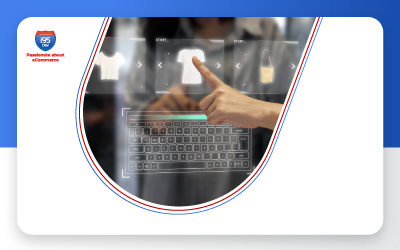Understanding SAP B1 and Magento
Integration Touchpoints

Relying entirely on your SAP B1 for all the crucial functions of your business is not possible. Hence, you would also have to depend on your Magento e-commerce platform for a better understanding of your sales. This could be challenging if they function in silos. And, here’s where Magento SAP B1 integration comes into the picture.
SAP B1 is one of the most widely used ERP systems in small and medium-sized enterprises. It provides some useful options to users and developers and also integrates with other applications and ERPs when they need it. This can be easily done by leveraging different data touch points and application connectors that are available in SAP B1. What you get is one single ERP that can give you all the necessary data by communicating with various applications for better efficiency with SAP B1 ERP.
Advantages of Having Your SAP B1 and Magento Integrations in Place
Listed below are a few benefits when it comes to SAP B1 and Magento Integrations:
Streamlined Process
It is essential that you are aware of all the happenings in your business. This will allow you to make proper decisions. However, this is only possible when your ERPs and applications work with each other in a streamlined way. The data received from various sources always seem to be different and this causes a problem. Hence, proper integration with the data sources will solve these problems. You can also read, testing times for e-commerce.
Better Workflow Process
If all the functions of your business are running separately, the output would never be perfect. An ERP integration would help out with this, giving you a complete view of your business. Since each ERP is different when it comes to workflows, integrating the ERPs can get rid of these problems and give you a better workflow.
Better Data Accessibility
Information such as name, phone number, count related to sales, finance, and operation is critical for a business to flourish. If this information is not in one single place, it can be difficult to run a business. Hence, having everything together helps with better data accessibility.
Saves a Lot of Money
The main aim of any business is to make money, right? However, this is only possible if you save money. Having an ERP in place will only help you save the right amount of money by increasing productivity and avoiding wastage of resources. If your productivity is affected and there is a repetition of the same type of job on two different platforms, it means that your business is losing money. Hence, integrating your SAP B1 and Magento platforms is necessary and is the best solution you could go for.
Better and Faster Processing
Though it’s a better option to have an ERP or single system in place, it’s sometimes not possible due to certain factors. This could lead to problems like duplication of work, time consumption in generating reports and matching information across different systems. Hence, for better and faster processing, SAP B1 and Magento integration should be done.
Better Coordination
With proper integration, you get a completely automated and bi-directional data exchange between ERPs, which helps to reduce the duplication of work and manual processes. Adequate integration of SAP B1 and Magento will enable the different departments to coordinate and work together systematically.
SAP B1 and Magento Integration Touchpoints
Magento SAP ERP is a great way to go about to deliver an excellent experience to your customers. It will help benefit your business in ways such as automating processes, sync of data, and timely information. You can integrate your SAP system with any of the e-commerce platforms as well.
For an online business to be successful, it has to depend on accounting, shipping, payment, tracking, and some other services to deliver superb customer experience. Various companies provide all these services. So, you would have to set up a sound system that provides both – you and your customers with up-to-date information. Integration these days has become very necessary for online businesses since this can make it very easy for your business to function well. Some key Magento SAP extension includes marketplace integrations, shopping cart integration, accounting integration, payment integration, shipping integration, package tracking integrations, and CRM integrations. Below are the SAPB1 and Magento Integration Touchpoints.
Customer Sync
- Customer’s account and contact information, shipping and billing addresses will be available in the ERP.
Delivery/Shipment Sync
- The shipment/delivery will sync back to e-commerce and update the web order status as per e-commerce.
- The shipment tracking number generated within ERP will also be updated in e-commerce.
Invoice Sync
- Against the online payment in e-commerce, the invoice is generated and downloaded to the ERP along with the payment information.
- For offline payments, invoices generated in ERP will sync back to e-commerce and will also update the web order status.
Item Sync
- Items that are already available or newly created will be synced back to the ERP as an item or article.
- E-commerce SKU will turn to ‘item code’ in ERP.
- After the sync, item descriptions and images will be available in ERP.
- The item code will act as SKU.
- All item names, descriptions, images, pricing etcetera within ERP will sync to e-commerce.
Sales Order Sync
- The web sales order can be also added as a draft sales order or sales order in ERP.
- Any discount coupons, applied discounts, shipping charges, and payment information will also be available in the ERP sales order.
Stock Update
- The stock update in ERP will be seen in the web inventory of e-commerce.
Challenges Faced With SAP Business One Integration
SAP Business One supports most third-party integrators and this can be done by development partners or clients using standard tools. Try understanding the challenges Magento SAP B1 integration addresses for you. However, this doesn’t mean that integration will not encounter any problems and errors. Hence, to ensure that your SAP B1 integration process does not create problems for you, there are few things to be aware of and ask the following questions.
- What is the reason to have integration and what are your business requirements?
- Which SAP B1 application are you using?
- Is there any SAP B1 supported API for the application you are to integrate?
- If there are no integration tools available, then do you have Business One Development Environment and SaaS integration skills in-house?
- Has your business customized the SAP B1 in a way that would impact your integration process?
Today, businesses are making the necessary efforts to transform their platforms to be more competitive and efficient. If you are looking to get your SAP B1 and Magento integrations done for your business, you can connect with us or call us at 301.760.7499 for more information on this. Our excellent services and expertise will help you achieve your business goals and help your online store reach great heights.




